The Government’s policy on when the United Kingdom might employ its nuclear deterrent, and the resources needed to sustain that capability, were debated in the House of Lords on 5 June, according to Hansard.
Lord Trefgarne, Conservative, sought categorical assurance that “our nuclear weapons will be used only when our supreme national interest so requires, and in no other circumstance.”
Defence Minister Lord Coaker replied that the deterrent would be contemplated “in the most extreme of circumstances,” stressing a principle he has “said many times at the Dispatch Box”—that the purpose of the deterrent is to prevent conflict: “It is that whole concept that sometimes seems contradictory: that by preparing for war, you prevent war. The strategic nuclear deterrent is the most significant example of that.”
Labour peer Lord West of Spithead said Britain’s nuclear enterprise has “always been at the very limits of our technological, industrial, scientific and cost profiles.” Recalling the slow pace of early warhead projects such as Blue Danube and the subsequent Beard series, he warned that current pressures from the civil-nuclear sector compound the challenge.
“We have to have a really national endeavour among all departments to pull together so that we can get the training of scientists and everyone focusing on this particular issue, because otherwise we will find it very hard to deliver—certainly within the cost parameters, but very hard to deliver anyway.”
Lord West added that a prime-ministerial review he conducted while in government had confirmed the independence of the deterrent—“I was allowed access to all sorts of things, and the answer is that it is independent”—though over the next two or three decades “that becomes more difficult, because of maintenance of missiles, for example.”
Lord Coaker agreed that sustaining the arsenal must be “a national endeavour,” acknowledging that “the need for us to upskill, to have more apprentices and to have more of the systems available to us in order for us to be able to deliver the defence programmes and projects that we want is a challenge.”
He concluded, “Let me be clear that we will make sure that we have all the necessary skills and capabilities required to maintain our nuclear deterrent.”



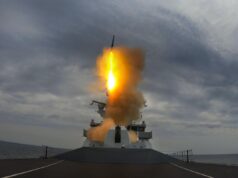
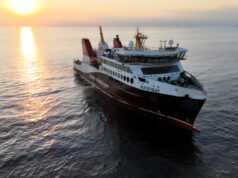
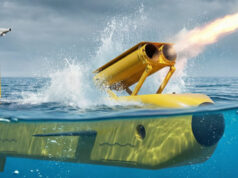
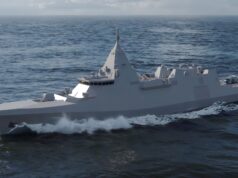
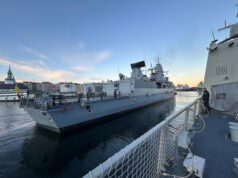


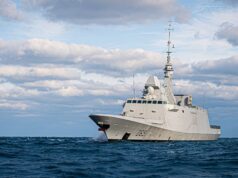
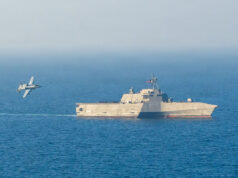
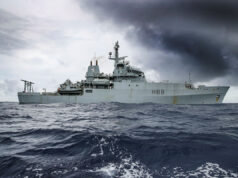

This fantastic deterrent capability continues to put the UK at the cutting edge of global power, the skills and technical brilliance are second to none and a credit to the determination and professionalism shown by all involved.
Shame the missiles keep plopping back in the salty stuff.
I wish there was a like button here to click.
There was once, along with a dislike.
Both were abused so they were removed.
“Be careful what you wish for”.
Two failures in 2016 & 2024, unless there’s others that haven’t been publicised. I know they were successive but maybe that means they should be tested more often.
Hw, hasn’t this only happened once or twice?
We have a nuclear deterrent and a conventional deterrent. I am not sure most people have the foggiest idea what deterrent means. Our CAST nuclear deterrent has been 100% successful demonstated by all the wars we haven’t had. The conventional deterrent needs a little re-inforcement with a substantial increase in kit to demonstate that we can easily defeat any force which might threaten us. We also need our allies to understand that Russia cannot be allowed to enlarge itself to become the sort of threat it was during the cold war.
Correct insofar that a strong defensive and offensive posture and capability, with the will to go toe to toe with others, does prevent war! Simple! War is not won by fairness, there should be no fair fight in war and combat, war is prevented by strength and won by courage and good planning and logistics!
“War, what is it good for, absolutely nothing”.
Say it again, Edwin.
He’s a starr…
We have a major problem with defence in the UK. Due to the austerity peace dividend cutbacks we are left with next to no home defence capability and are increasingly if not solely reliant on the all or nothing existence threatening option of nuclear retaliation. The problem with this therefore is that at what point do we initiate a response with these weapons? Is it after a few undersea cables and oil platforms are destroyed, an airbase obliterated, or a couple of our few air defence destroyers and accompanying aircraft carrier with half our F35 fleet sunk? Is a nuclear response proportionate? And what happens after the on patrol Vanguard submarine has exposed its whereabouts and let off its handful of missiles? We cannot adequately defend our air space with anything other than a handful of aircraft operating out of then defunct air bases, and we certainly have no adequate ammunition re-supply capability, or the means to scale-ably produce replacement weapons and systems. If we don’t have any other form of conventional defence, much like a honey bee, then the only option is that nobody survives. What real choice is that? And faced with that choice the likelihood of not unleashing MAD reduces even further.
Due to these long standing cutbacks we have no real resilience, no home guard backstop, no civil defence capabilities and even if we have invoked nuclear armageddon and an aggressor decides enough is enough, what then?
Our nuclear capability is no more than a means of retaliation after an imaginable event. The policy fails because it assumes that we will always be left alone with no interference in our affairs because of the risk of a nuclear response. Real defence is based on credible and ample conventional capability able to deal with potential peer on peer threats. It is not sufficient to scale our forces on the basis of only ever barely carrying out police actions in third world countries, and even that is reliant on other countries. Only having the capacity to present a short term brigade expeditionary force after denuding what is left for the homeland is far from credible.
We have placed far too much emphasis on nuclear backstops in the hope or expectation that the US will appear over the horizon on a just-in-time basis. Defence must, in order to have any credibility, be able to defend our borders and infrastructure for years if necessary as well as be able to protect supply lines of vital raw materials. This includes upping our medical and care resources as they are just as important as front line troops, and that every citizen has a role to play.
Whether or not we retain a nuclear backstop is one question, but without a credible conventional defence and resupply capability it is a moot point if there is any real value in the expenditure on that one all or nothing system. Those costs could be much better spent reinforcing non-nuclear forces, and boosting national resilience capabilities, which incidentally also support our armed forces, if nothing else something for the them to come to!
Nick. Interesting that politicians spout that the first duty of Government is defence of the nation, then fail to deliver it. In SDR a stated priority, listed first, was the deterrence and defence of the UK and dependent territories. Fron an army point of view, Military Home Defence (MHD) is so weak as to be virtually non-existent. I am fairly sure that the last MHD exercise was in 1985 and a further exercise for the late 80s was planned but not carried out as the Berlin Wall came down. In the whole of west and easy Sussex, there is only one reg unit and it is an RA air defence unit, so it would not be available for MHD of both Sussex counties. RA coastal artillery demised at allin 1956. There is no Ground Based Air Defence assigned to protect military bases, air bases or high value civilian infrastructure. There is no Civil Defence organisation, no Warning & Monitoring organisation, no protected seats of regional government, no public air raid shelters. The Government War Book has not been updated since the Cold War. Probably no stored food etc. Nothing in place at all. I am sure the air and naval side is equally weak.
That is exactly the point. We have all our eggs in one basket and that is just a single on patrol ageing submarine. Appeasement hasn’t stopped Russia, or N Korea, it hasn’t and doesn’t stop assymetric destabilisation. We might unleash nuclear retaliation but what happens after? Leave us alone or we’ll obliterate you (and us) didn’t stop cables being cut, social media disinformation, Salisbury, electoral interference and bribery, and more. We might end up an island in a sea and world of devastation but that is no comfort. We might not want to invade other countries but we need to able to stop people invading us. What conventional defence could we have for a fraction of the cost of an in effect unusable nuclear capability?
Ideed. It is criminally irresponsable for a nuclear state to run down its forces so far that it neither deters our enemies nor provides the means to effectively defend ourselves so that the nuclear option is the very last resort it only ever should be. The rot should’ve been arrested a decade ago. Finally the country is waking up to the dire mess we’re in.
I’m rather baffled at why we now think we need tac nukes, even for deterrents. If you use them, your nation is oblioterated in response. End of. That should stop Russia etc trying it & there’s plenty of alternatives to destroy large enemy formations.
Fat wallets and brown envelopes swilling around the financial industry is probably a major cause! As well as all the bigger NHS queues, lack of police, underresourced borders agencies, care staff reductions, all the consequences of pandering to finance greed for the few meaning austerity and insecurity for all. They are the ones with the hoarded wealth, and how do they think their broken hard drives will help them after a nuclear holocaust?
To be honest, our deterrence is undermined in three ways.
First, the subs. They’re old, tired, being replaced too late and have spent heaps of time NOT patrolling. We kid ourselves that this is a 24/7, 365 deterrence ,but there’s evidence to suggest otherwise.
Secondly, failure rate. There’s always a reason, always an excuse – but we need a missile to launch and hit it’s intended target, if only for our own sanity.
Thirdly, American dependence. We’re reliant on them for maintenance of the Trident missile. Not the warheads, sure – but what use are those without a delivery vehicle? The USA – a country who’s values and ideology drift further from our own with seemingly every day that passes. A country who not only doesn’t respect us, but who actually holds a position of animosity towards us.
All three are alarming.
But I suppose it’s nothing that F35A and American made dumb bombs couldn’t fix… right? *nervous laugh*
I’m not going to argue that the ballistic subs have been on patrol 24/7, though I’ve no reason to assume otherwise. Instead let me ask you why they need to be? Can’t a submarine fire a complement of nukes from Faslane or Loch Long just as easily as from the middle of the North Atlantic? Obviously you wouldn’t want to have them in the same place all the time, but if occasionally they aren’t on North Atlantic patrol, isn’t the biggest difference that it relects badly on the deterrent value.
The problem with the failures as I see it is twofold. We test so infrequently we can’t get the procedures right. The point with Vanguard was to test if it could launch the missile, not that the missile flew where it should go. The test was declared a success, with no concern over the optics. If the missile doesn’t go where it should because your test protocols don’t take post launch sufficiently into account, you lose credibility and need to repeat. We didn’t because that would have been expensive. We spend hundreds of billions on a deterrent, and when the deterrence value is degraded, we dismiss it for the cost of what: £20m?, £30m? I don’t find the failure alaming. I find the attitude towards it alarming.
I guess the only think that would stop a launch from Faslane or Loch Long would be that it’s probably the first target on the list of adversaries that would likely strike with Nuclear weapons. Wouldn’t be an issue assuming you could go from warning of an incoming attack to launch of our response quick enough, which I doubt. If you didn’t get them off in that time then you’ve got no response at all.
At least if it’s at sea, the UK can respond regardless of how crippled the country is.
It is a nice idea, but the missiles are launched with compressed air and only ignite once they breach the surface. Not even sure that the concept has been tested, are the missiles always on board and only the warheads loaded at Coulport? Since these are offloaded before they berth at Faslane there is little point in launching an empty missile!